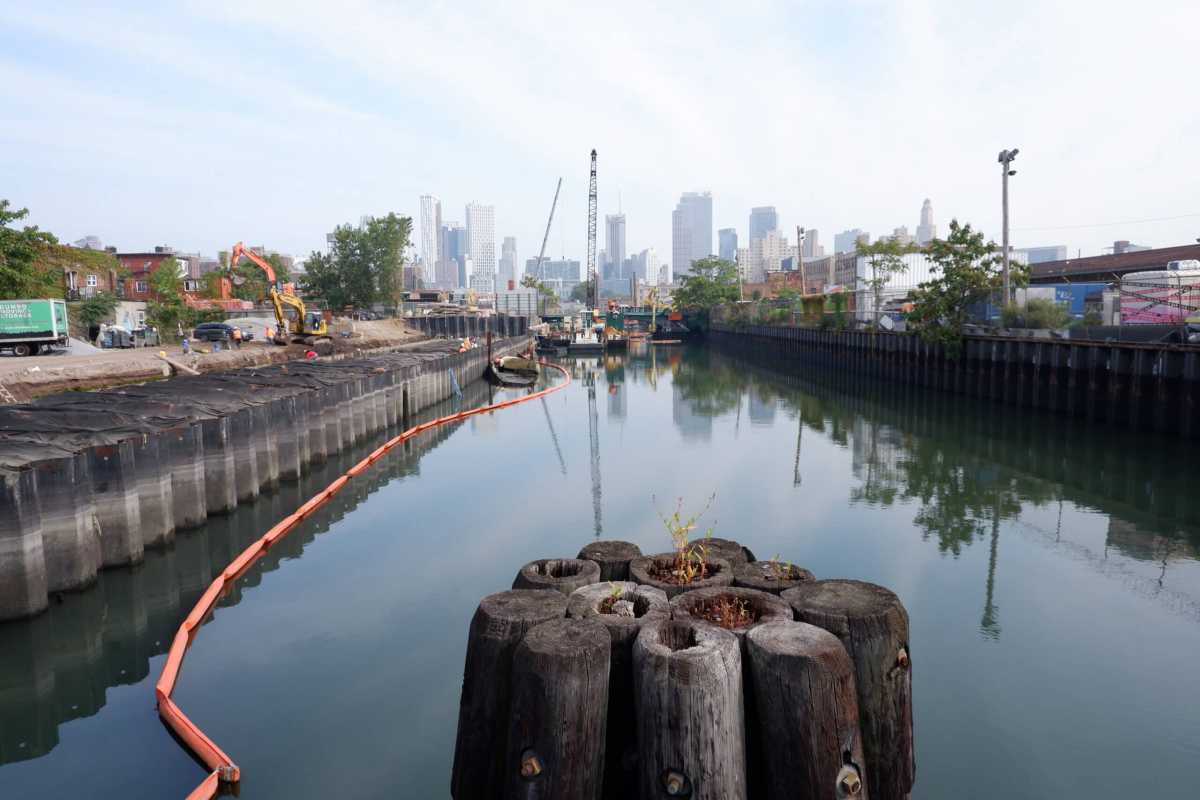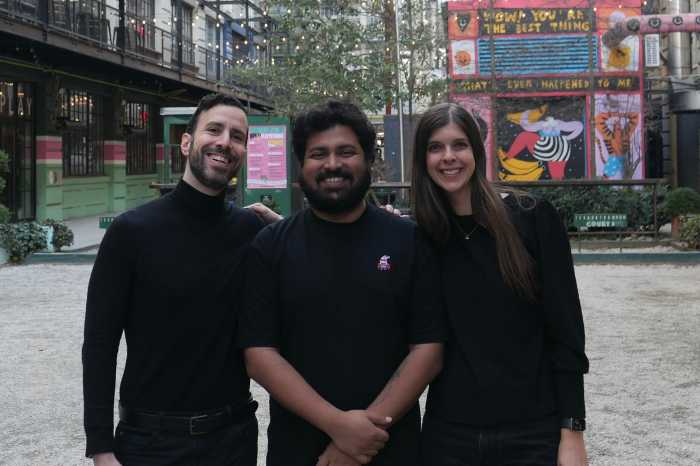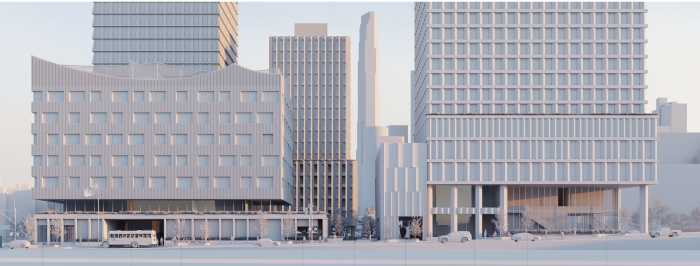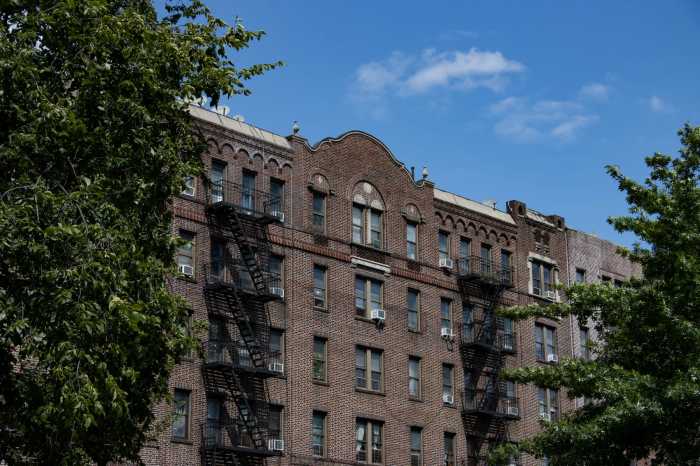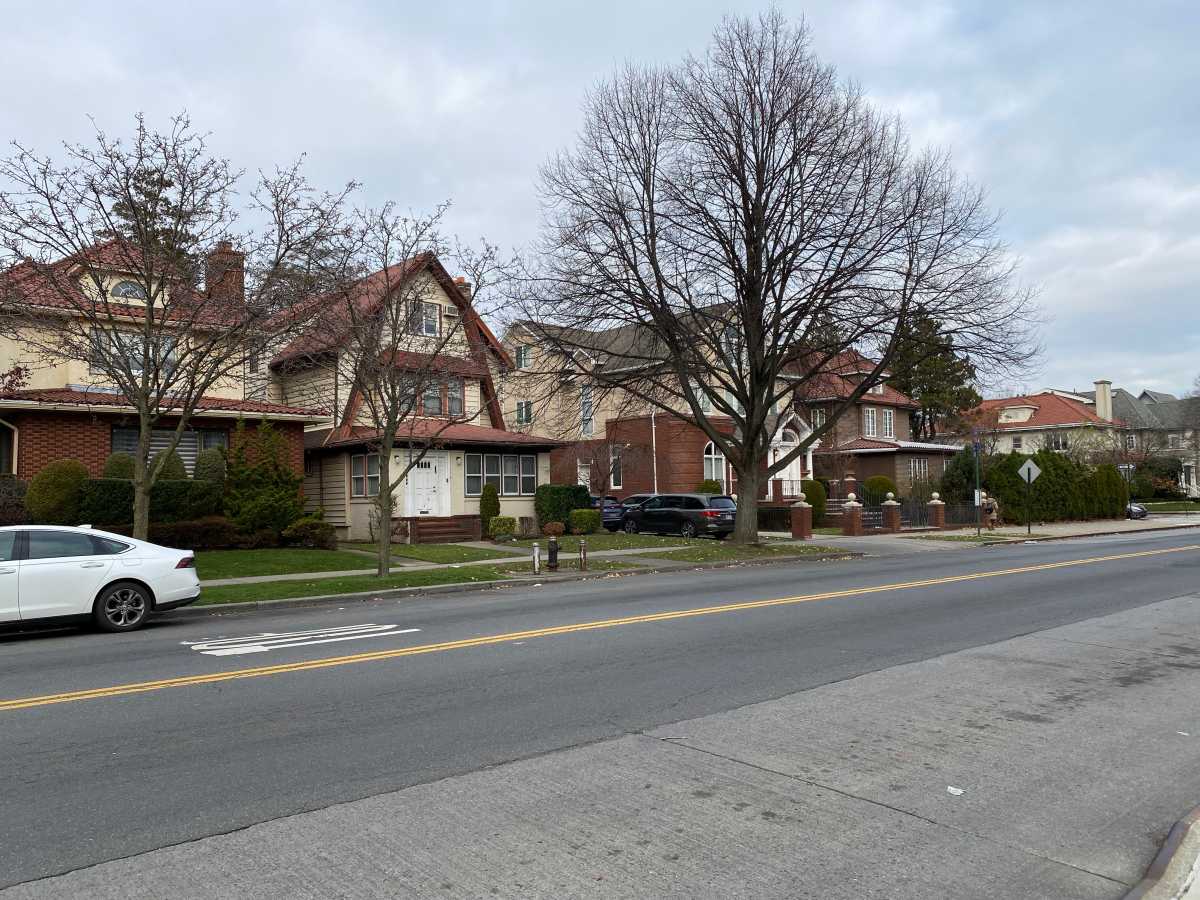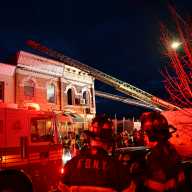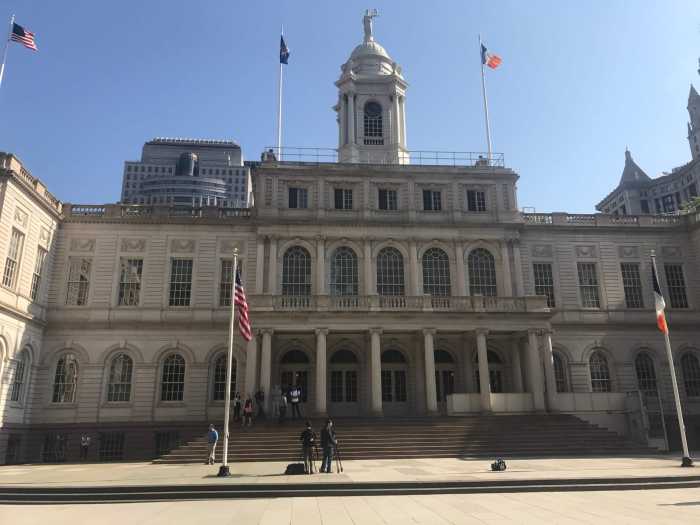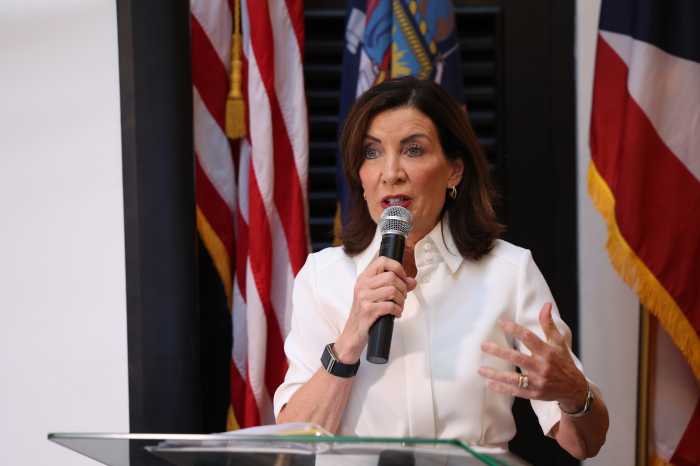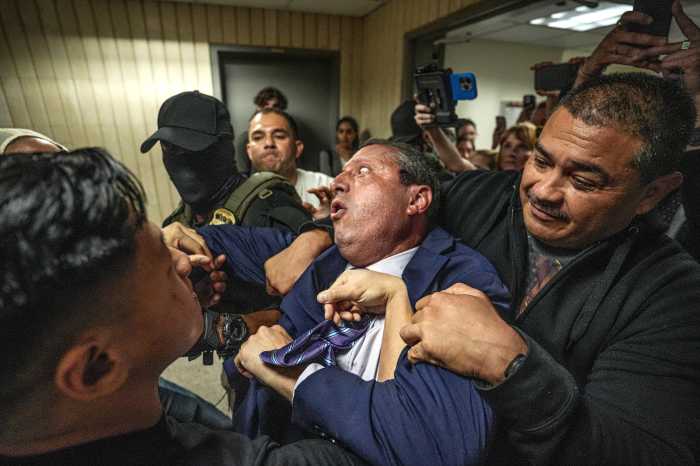A Brooklyn Judge has lifted a temporary restraining order on the city’s Gowanus rezoning on Monday, allowing the contested neighborhood-wide land use proposal to move ahead after months of court battles about the legality of virtual public hearings amid the pandemic.
Supreme Court Justice Katherine Levine agreed to let the city launch the scheme into public review on the condition that officials offer an in-person location for locals without an internet connection to tune into a virtual hearing about the project organized by local community boards 2 and 6, according to an attorney in the case.
“The effort to prevent public participation in the guise of increasing public participation has failed. The Judge properly concluded that she could not block a virtual hearing and that she couldn’t hold the process up any longer,” said Ken Fisher, who previously filed an intervention in the lawsuit on behalf of community groups in favor of the rezoning. “She will order the City to have an ‘in-person’ location in addition for people who don’t have Internet service, but they are well on their way to figuring out the logistics.”
The in-person event will take place at J.J. Byrne Playground at Fifth Avenue and Third Street in Park Slope, where folks will be able to watch the Zoom meeting and testify as well, according to Fisher.
A spokesperson for the Department of City Planning — the agency in charge of the rezoning — confirmed in a statement that the rezoning will move into public review Monday afternoon.
“After New York Supreme Court Justice Levine lifted a temporary stay earlier this afternoon, the proposed Gowanus Neighborhood Plan will be presented to the City Planning Commission to begin the City’s public land use review process today,” said Melissa Grace. “We are grateful for the ongoing attention to this case by Justice Levine, and we will continue to work with the Court and the community to ensure that the Plan, which has been in the making for many years, is widely reviewed.”
An attorney for the plaintiffs, a group of opponents of the rezoning known as Voice of Gowanus, released a statement in response Monday emphasizing Judge Levine’s order being conditional on requirements which the city has not yet met and that court proceedings continue.
“The lifting of the TRO was provisional and is contingent upon the City meeting certain requirements, which it has not yet done,” said Jason Zakai in a statement. “The court proceeding continues, and Voice of Gowanus will not waver in its fight on behalf of the community to ensure there is increased public participation, access and transparency at any [Uniform Land Use Review Procedure] public hearings on the massive and controversial Gowanus rezoning plan.”
The group sent out an additional statements saying the group was reviewing “the full range of legal options.”
“Justice Levine’s order today is provisional. Importantly, it does not reflect a ruling on the actual merits of the case. Voice of Gowanus continues to review the full range of legal options,” the group wrote.
The April 19 move, which was first reported by The Real Deal, follows DCP announcing Friday evening that Judge Levine was likely to let the rezoning start.
The city’s announcement angered the lawsuit’s plaintiffs, chiefly the group Voice of Gowanus, which opposes the rezoning and slammed officials for disclosing behind-the-scenes negotiations.
“We are outraged that the city has shamefully opted to divulge details of confidential settlement discussions in an aggressive public relations move to try to misconstrue the status of our lawsuit and the Gowanus rezoning ULURP application,” the April 16 statement read.
The neighborhood-wide rezoning — which would allow for some 8,000 new housing units to be built along the toxic canal over the next decade-and-a-half, including about 3,000 at below-market-rates — has been stalled in court since opponents of the plan sued the city in January, and the court granted a temporary restraining order on the proposal just days before the city planned to launch it into public review.
The plaintiffs claimed the city’s plans to hold ULURP hearings via Zoom was against the City Charter.
But critics of the lawsuit said the legal move was just an attempt to delay the project long enough so it wouldn’t make it through the roughly seven-month ULURP schedule before the end of 2021, when Mayor Bill de Blasio leaves office and elections shake up the City Council, which has veto power in the review process.
The City Planning Commission on Friday scheduled a hearing on the rezoning for Monday afternoon.


